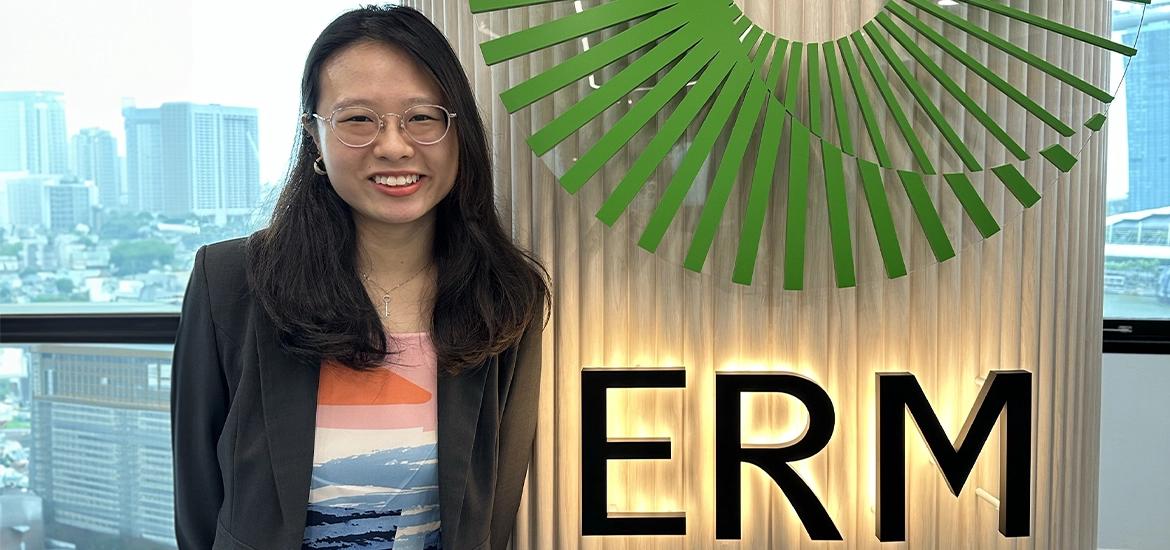Esther Lee is a Senior Sustainability Consultant at global consultancy firm ERM, which has its Southeast Asia headquarters located in Singapore. The company expanded its team in 2024 to accelerate growth in the region, with comprehensive training and mentorship given to its local workforce to help them build capabilities across different sustainability domains. Esther holds a Bachelor of Social Sciences in Geography with a minor in Geoscience from the National University of Singapore.
1. Tell us about what you do at ERM.
As a senior consultant in ERM’s corporate sustainability and climate change team, I collaborate with clients on a wide range of projects, covering areas like climate risk and greenhouse gas emission assessments, as well as decarbonisation strategy. Over the past five years, we’ve seen many corporates start measuring their sustainability impact and setting ambitious targets to achieve but implementation hurdles remain the biggest obstacle for them. Companies don’t always know how to get there and that’s where we step in — you can see us like a coach or a guide whose job is to help companies on their sustainability journeys.
I like to say we work “from boots to the boardroom”. That means we advise top executives on big-picture strategies and work with teams on the ground to execute them. Our work can differ from client to client, depending on which stage they are at in their sustainability journey. Sometimes it’s about helping them measure their carbon footprint or modelling ways to cut emissions. Other times, it’s about integrating environmental and social considerations into their investment decisions, checking if their targets and plans are realistic, or making sure their actions stand up to scrutiny from regulators, investors and the public. In this role, every day brings something different: a new client, a new sector, a new framework, or even a new regulation. This keeps me on my toes and I’m constantly learning.







